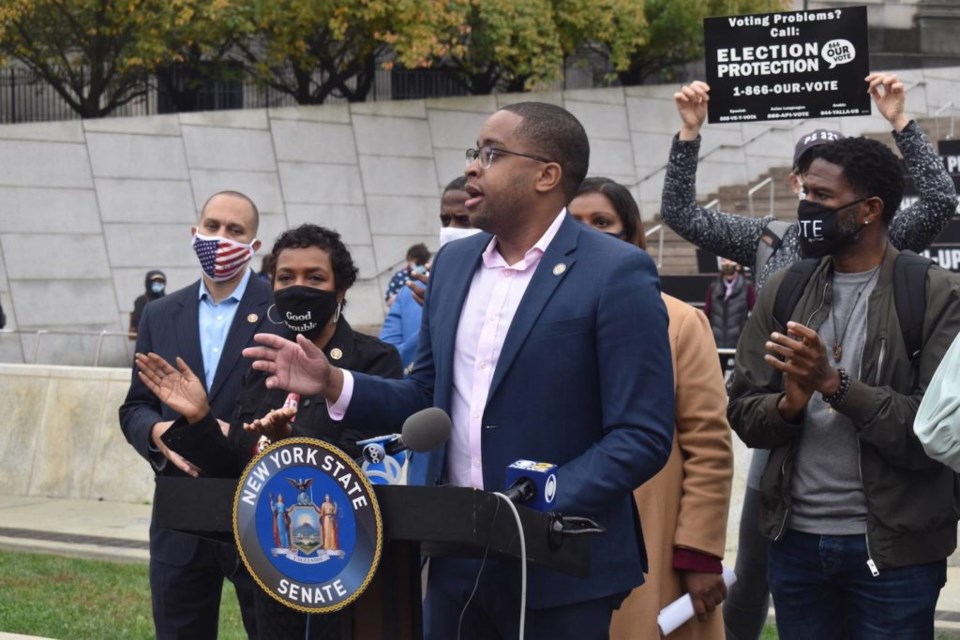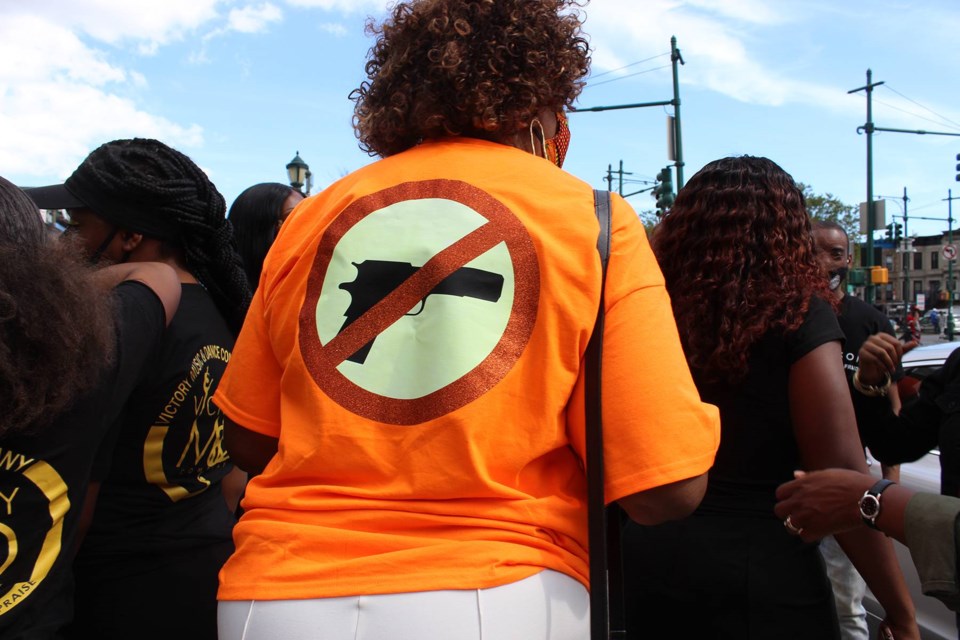Last year, New York City experienced its deadliest year in over a decade.
Across the city, murders were up 40% on 2019, jumping from 312 to 436, The City reported. Gun violence claimed the lives of a number of Brooklyn residents, young and old, and drove community members to the streets in rallies held across neighborhoods.
There has been speculation that access to guns has become easier, prices have dropped and more young people are getting their hands on the deadly devices. One thing that is certain is over the past decade gun manufacturers have increased by 255% and their profits have been up during the pandemic.
Meanwhile, public pressure led by gun violence prevention groups has resulted in some companies in large-scale industries to turn their backs on the gun industry. One such example is banking. Over the last two years, Bank of America and Chase, amongst others, have cut ties with the firearms and ammunitions industries.
But a last-dash attempt by the outgoing Trump administration could change that, forcing banks to fund the gun industry against their will.
The Office of the Comptroller of Currency, a little know federal agency, laid out a new rule that it says ensures "fair access" to banking and financial services that would make it much more difficult for banks to deny services to companies involved in the weapons trade. The rule, which is open for public comment until midnight January 4, would require banks to judge companies eligibility for funding solely on financial metrics, not political or societal considerations.

On Monday, New York State Senator Zellnor Myrie, who represents a large part of Central and East Brooklyn, said the rule was "egregious" and a "slap in the face to everyday Americans."
"The same firearms being recovered from gun traffickers on city streets are being produced by companies whose stocks are rising," he said in a letter. "Tragically, the flow of legal guns to the illegal market continues to have the harshest impact on Black and Brown communities while costing the country tens of billions of dollars annually."
He said at a time when the gun industry was flourishing, and doing so to the detriment of historically marginalized communities, "the proposition that banks be forced to lend to this industry because of alleged discrimination would be laughable if it were not so deeply disturbing."
"The OCC's attempt to frame this rule in our anti-discrimination principles is even more staggering," he said, adding gun companies had neither experienced historical discrimination nor share immutable characteristics that would form the basis for such discrimination.
"Gun violence claims many victims, but the gun industry and its profits aren't one of them. By attempting to pass this new rule on their way out the door -- and scheduling the required public comment period during the December holidays -- the Trump Administration is cynically acting true to form in its final miserable weeks," he said.
"I strenuously oppose this rule change and encourage everyone to do the same."
Myrie said The OCC did not have the legal authority to propose the rule, and even if it did, the rule failed on several grounds. He said it lacked any empirical evidence that gun manufacturers suffered from discrimination; data suggested the gun industry was doing very well; and data also showed the marked increases in gun violence and homicides caused by guns, the fiscal impacts of such violence, and the proposed rule's lack of appreciation that a bank's association with such violence poses serious reputational risk.
"The proposed rule would remove a bank's ability to manage the reputational risks associated with financing the gun industry, and may, in certain instances, force it to do business in areas for which it has no expertise," he said. Experts told The Trace the rule could also have consequences for how banks do businesses with companies in fossil fuels and mining, private prisons and payday lenders.
"The proposed rule is a slap in the face to everyday Americans suffering under the twin pandemics of COVID-19 and gun violence," Myrie said.
"The OCC's focus on ensuring financing for industries making record profits while homeowners face foreclosure and small businesses face extinction is appalling."




